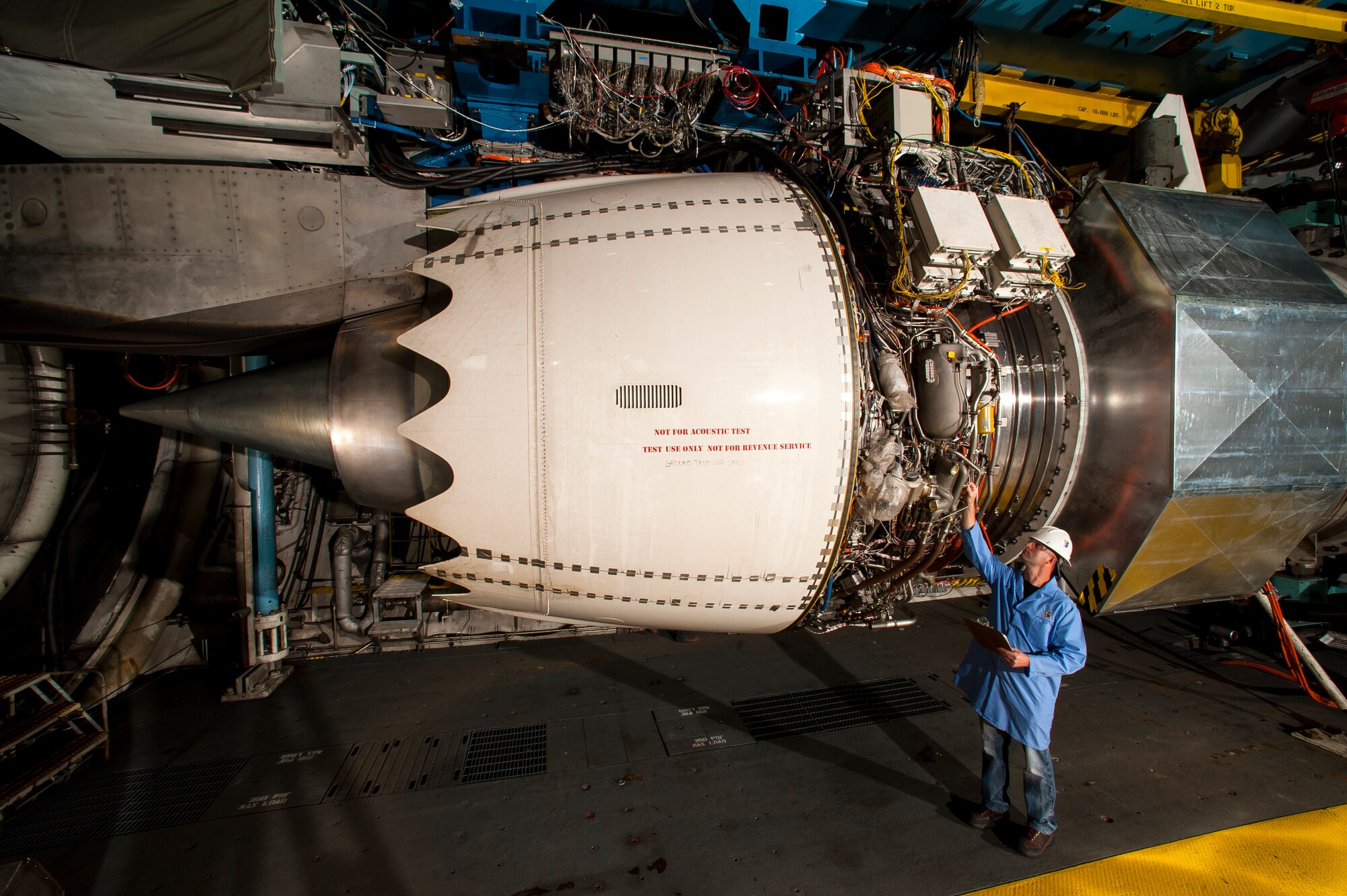EN 590 Engine Fuel Property Testing for Jet-A and Jet-A1
The EN 590 standard is a European Union regulation that defines the properties of aviation turbine fuel, commonly known as Jet-A or Jet-A1. This standard ensures that all fuels meet specific quality requirements to ensure safety and reliability in aircraft propulsion systems. The testing outlined in this standard is crucial for compliance with regulatory requirements and ensuring the performance and longevity of engines.
Jet-A and Jet-A1 are widely used aviation fuels, primarily by commercial airlines and military operations. These fuels must meet stringent criteria to prevent engine failure or performance degradation during critical flight conditions. This service provides comprehensive testing to ensure that fuel samples comply with the EN 590 standard.
Our laboratory is equipped with state-of-the-art analytical instrumentation capable of performing a wide range of tests required by this standard, including viscosity, flash point, water content, sedimentation, and other critical properties. We offer both in-house testing and on-site sampling services to cater to our diverse clientele. Our team of experts ensures that each sample is handled with the utmost care and precision, providing accurate and reliable results.
Compliance with EN 590 is not only essential for legal reasons but also plays a significant role in maintaining engine performance and safety. Regular testing helps identify any potential issues early on, allowing for timely corrective actions. By adhering to this standard, operators can ensure consistent fuel quality across all aircraft, leading to safer operations and reduced maintenance costs.
Our laboratory has extensive experience in conducting EN 590 tests and is committed to delivering high-quality results. We offer a range of services tailored to meet the specific needs of our clients, including:
- In-house testing
- On-site sampling
- Comprehensive report generation
- Technical consultation on fuel quality issues
We work closely with our clients to understand their unique requirements and provide personalized solutions. Our goal is to ensure that every sample tested meets the highest standards, thereby contributing to safer and more efficient operations.
Applied Standards
| Standard Code | Description |
|---|---|
| EN 590:2017 | European standard for aviation turbine fuel properties |
| ASTM D1652-18 | American Society for Testing and Materials specification for aviation turbine fuel |
The EN 590:2017 standard sets out the requirements for aviation turbine fuels, including specifications for density, flash point, viscosity, water content, and sedimentation. The ASTM D1652-18 specification also complements this European standard by providing additional guidance on fuel quality.
Compliance with these standards ensures that aircraft engines receive fuel of consistent quality across different regions and operators. By adhering to these regulations, we help maintain the reliability and safety of aviation operations worldwide.
Scope and Methodology
| Test Parameter | Description |
|---|---|
| Density at 15°C | Measures the mass of fuel per unit volume, ensuring consistency with specified limits. |
| Flash Point | The temperature at which fuel gives off enough vapor to ignite. Ensures safe handling and storage. |
| Viscosity at 40°C | Determines the resistance of fuel to flow, affecting engine performance. |
| Water Content | Measures the amount of water present in the fuel, preventing ice formation and corrosion. |
| Sedimentation | Checks for solid particles that could cause blockages or damage to engines. |
The testing process begins with sample collection from aircraft tanks or other storage facilities. Samples are then prepared according to the standard procedures outlined in EN 590:2017 and ASTM D1652-18. Our laboratory uses advanced analytical instruments such as densitometers, viscometers, flash point testers, and particle analyzers to ensure precise measurements.
Once testing is complete, our team of experts evaluates the results against the specified limits in the EN 590 standard. Any deviations from these limits are reported immediately, allowing for prompt corrective action. Our comprehensive reporting includes detailed data on each test parameter, along with an overall compliance assessment and recommendations for future fuel management.
By adhering to this rigorous testing protocol, we ensure that all samples meet the strictest quality standards set by EN 590:2017 and ASTM D1652-18. This commitment to excellence helps maintain the highest levels of engine performance and safety in aviation operations.
Benefits
Compliance with EN 590 standards is essential for maintaining reliable and safe aircraft propulsion systems. By ensuring that fuel samples meet these stringent criteria, operators can:
- Avoid costly delays caused by fuel-related engine failures.
- Ensure consistent performance across all aircraft in a fleet.
- Reduce maintenance costs associated with fuel-induced wear and tear on engines.
- Meet regulatory requirements to avoid legal penalties or operational restrictions.
- Promote safer operations by preventing incidents caused by substandard fuel.
In addition, regular testing helps identify potential issues early on, allowing for timely corrective actions. This proactive approach not only enhances safety but also contributes to more efficient and reliable aircraft operations.
Our laboratory offers a range of services designed to meet the specific needs of our clients. Whether you require in-house testing or on-site sampling, we provide personalized solutions tailored to your unique requirements. Our team of experts works closely with you to ensure that every sample tested meets the highest standards, thereby contributing to safer and more efficient operations.





